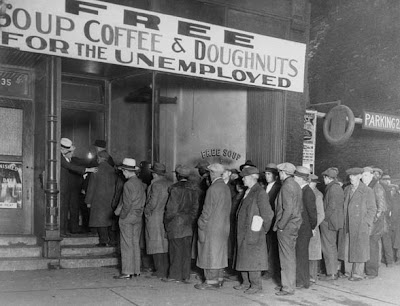However, other historians who have analyzed the origins of the Agricultural Adjustment Act in depth have discovered no inspiration from Europe. For example; Theodore Saloutos in his 1982 book[24] "The American Farmer and the New Deal."
Other scholars believe linking the New Deal to Fascism to be overly simplistic. Historian Stanley Payne, in his 1995 book, "A History of Fascism, 1914-1945" [4] wrote:
"What Fascist corporatism and the New Deal had in common was a certain amount of state intervention in the economy. Beyond that, the only figure who seemed to look on Fascist corporatism as a kind of model was Hugh Johnson, head of the National Recovery Administration."
Johnson strenuously denied any association with Mussolini, saying the NRA "is being organized almost as you would organize a business. I want to avoid any Mussolini appearance -- the President calls this Act industrial self-government."[5] Donald Richberg eventually replaced General Hugh Johnson as head of NRA and speaking before a Senate committee said "A nationally planned economy is the only salvation of our present situation and the only hope for the future."[25][26]



